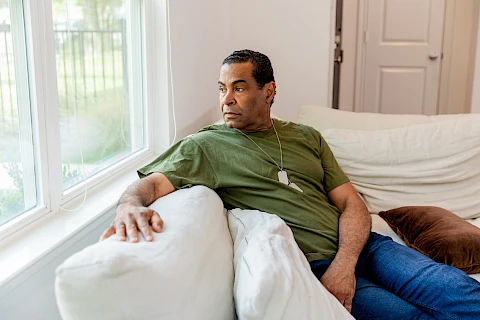
Post-traumatic stress disorder (PTSD) is a mental health condition that can disproportionately affect veterans, especially as they reach their senior years. Recognizing PTSD's unique nature in senior veterans and providing the right assistance is crucial.
Senior Helpers is committed to offering guidance and resources to those veterans who are coping with PTSD. Let's explore various therapy options, coping strategies, and the importance of building a robust support network.
PTSD in Senior Veterans
As seniors, veterans not only grapple with the pressures of aging but also with navigating the complex terrain of past traumatic experiences that is PTSD. The condition often manifests through persistent, distressing thoughts reminiscent of the traumatic event, severe anxiety, nightmares, and even flashbacks.
Therapy Options for Senior Veterans With PTSD
Senior veterans with PTSD can benefit from various therapy options that cater to their specific needs.
Cognitive Behavioral Therapy (CBT) is a common approach that permits a veteran to recognize and alter distressing thought patterns. Through Prolonged Exposure Therapy (PET), veterans repeatedly expose themselves to thoughts, feelings, and situations that remind them of the trauma, aiding them to control their fear and distress over time. Eye Movement Desensitization and Reprocessing (EMDR) is another viable therapy where veterans focus on traumatic memories while receiving stimulation of the eyes through specific movements, thus helping them process and make sense of the trauma.
Coping Strategies for Senior Veterans With PTSD
On top of these therapies, there are numerous self-care practices veterans can utilize to cope with PTSD. Mindfulness and meditation can provide a sense of calm and help veterans stay grounded in the present moment.
Regular physical activity can also be beneficial, as it helps reduce feelings of anxiety and improve mood. This could include walks in nature or something as calming as a yoga class. Just make sure seniors consult with their doctors before starting a new fitness routine. Maintaining a balanced diet and getting an adequate amount of sleep also contribute to overall well-being, helping to better manage PTSD symptoms.
Building a Support Network
No one should face PTSD alone. A robust support network is invaluable in this journey. Family and friends can provide emotional comfort, while regular check-ins with mental health professionals can monitor progress and adjust therapies as needed. PTSD support groups provide a safe space for veterans to share experiences and coping strategies, offering comfort in the knowledge that they are not alone in their battle.
Get Care and Support for PTSD
As challenging as living with PTSD is, senior veterans should remember that help and support are always available. Utilizing the resources and strategies outlined here can significantly improve one's ability to manage the condition.
Senior Helpers Alle-Kiske Valley is dedicated to serving senior veterans coping with PTSD in Indiana, New Kensington, Pittsburgh, and Kittanning, Pennsylvania. With our range of professional services tailored to each individual's needs, we are here to ensure that our heroes receive the support they deserve. Contact us to learn more about our senior care services!